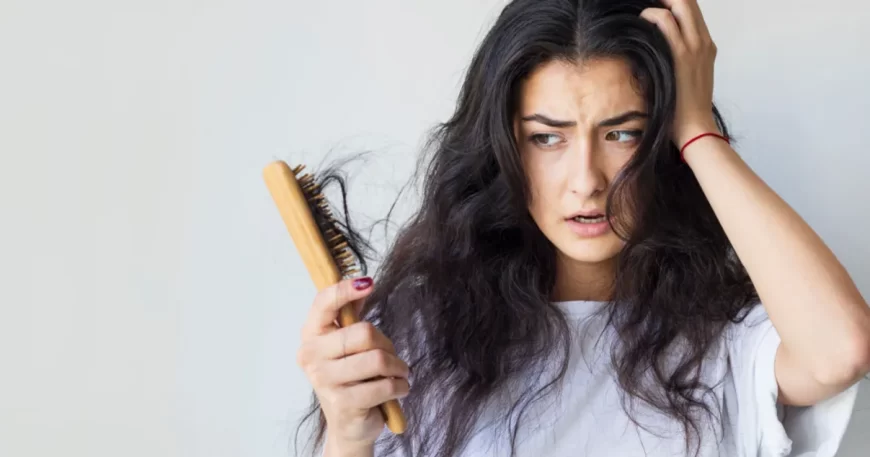What Causes Hair Loss for Women?
Hair Replacement Centre in Kolkata
Introduction
Hair loss in women is a common and often distressing experience. From thinning strands to noticeable bald patches, the reasons behind this condition can vary widely. Understanding the causes is crucial for finding effective solutions and regaining confidence. So, let’s dive into what might be causing hair loss and how you can address it.
Types of Hair Loss in Women
Androgenetic Alopecia (Female Pattern Baldness)
Female pattern baldness is the most prevalent type of hair loss in women. It typically manifests as thinning at the crown and widening of the part.
Causes and Symptoms:
This condition is often hereditary and linked to hormonal changes, especially involving androgens.
Progression Over Time:
Hair thinning progresses gradually and might not be noticeable initially, making early diagnosis critical.
Telogen Effluvium
This temporary hair loss occurs when a large number of hair follicles enter the resting phase simultaneously.
Triggers for Telogen Effluvium:
It can be caused by stress, surgery, or significant life changes.
How It Differs from Other Types:
Unlike permanent hair loss, this type often resolves on its own once the trigger is removed.
Alopecia Areata
This autoimmune condition causes the immune system to attack hair follicles.
Autoimmune Factors:
Alopecia areata may occur due to genetic predisposition or environmental triggers.
Patterns of Hair Loss:
Hair loss is often patchy but can affect the entire scalp or body in severe cases.
Traction Alopecia
Hairstyles That Contribute:
Tight hairstyles like braids, ponytails, and extensions can cause traction alopecia over time.
Preventive Measures:
Opting for looser hairstyles and limiting the use of tight accessories can help prevent this condition.
Common Causes of Hair Loss in Women
Hormonal Imbalances
Role of Estrogen and Progesterone:
Fluctuations in these hormones, especially during pregnancy or menopause, can disrupt hair growth cycles.
Impact of Pregnancy and Menopause:
Hair often sheds excessively after childbirth or during menopause due to hormonal shifts.
Nutritional Deficiencies
Lack of Essential Vitamins and Minerals:
Iron, zinc, and vitamin D are critical for maintaining healthy hair.
Importance of a Balanced Diet:
A diet rich in proteins, fruits, and vegetables supports optimal hair health.
Stress and Psychological Factors
How Stress Affects Hair Cycles:
Chronic stress can push hair into the shedding phase prematurely.
Managing Stress for Hair Health:
Techniques like meditation and exercise can help reduce hair loss triggered by stress.
Medical Conditions
Thyroid Disorders:
Both hyperthyroidism and hypothyroidism can lead to hair thinning.
Polycystic Ovary Syndrome (PCOS):
This condition disrupts hormonal balance, often causing hair loss and excessive hair growth in unwanted areas.
Lifestyle and External Factors
Hair Styling Practices
Heat Tools and Chemicals:
Frequent use of heat styling tools and chemical treatments weakens hair strands over time.
Long-Term Effects:
Consistent damage may lead to breakage and permanent hair loss.
Environmental Factors
Pollution and Hair Health:
Pollutants can clog hair follicles, leading to weaker strands and increased shedding.
Seasonal Shedding:
Hair loss may increase during specific seasons due to environmental changes.
Diagnosing Hair Loss
When to See a Specialist
If you notice persistent or severe hair loss, it’s time to consult a dermatologist or trichologist.
Diagnostic Tests and Procedures
Blood tests, scalp biopsies, and pull tests can help determine the underlying cause of hair loss.
Treatment Options for Hair Loss
Medical Treatments
Topical Solutions:
Minoxidil is a popular option that promotes hair regrowth.
Prescription Medications:
Hormone-regulating drugs may be prescribed for androgenetic alopecia.
Natural Remedies
Essential Oils:
Oils like rosemary and peppermint have shown potential in stimulating hair growth.
Scalp Massages:
Regular massages improve blood circulation to the scalp, encouraging healthier hair.
Lifestyle Changes
Healthy Hair Habits:
Avoiding over-styling and adopting gentle hair care practices can prevent additional damage.
Importance of Regular Checkups:
Routine health checks can identify conditions contributing to hair loss.
Preventing Hair Loss in Women
Adopting a Hair-Friendly Routine
Incorporate nourishing hair products and avoid excessive styling.
Role of Diet and Supplements
Include supplements like biotin and omega-3 fatty acids to support hair health.
Conclusion
Hair loss in women is influenced by a variety of factors, from genetics to lifestyle. While it can be challenging, understanding the root cause and exploring treatment options can make a significant difference. Remember, prevention and early intervention are key!
FAQs
- What is the most common cause of hair loss in women?
Hormonal changes, especially during menopause and pregnancy, are leading causes. - Can stress alone cause severe hair loss?
Yes, chronic stress can result in temporary hair loss, like telogen effluvium. - Are natural remedies effective for hair loss?
While not a cure-all, remedies like essential oils and scalp massages can support hair health. - How can I identify the cause of my hair loss?
Consult a specialist and undergo diagnostic tests to determine the root cause. - What are the best preventative measures for hair loss?
Maintain a balanced diet, reduce stress, and avoid damaging hair practices.




